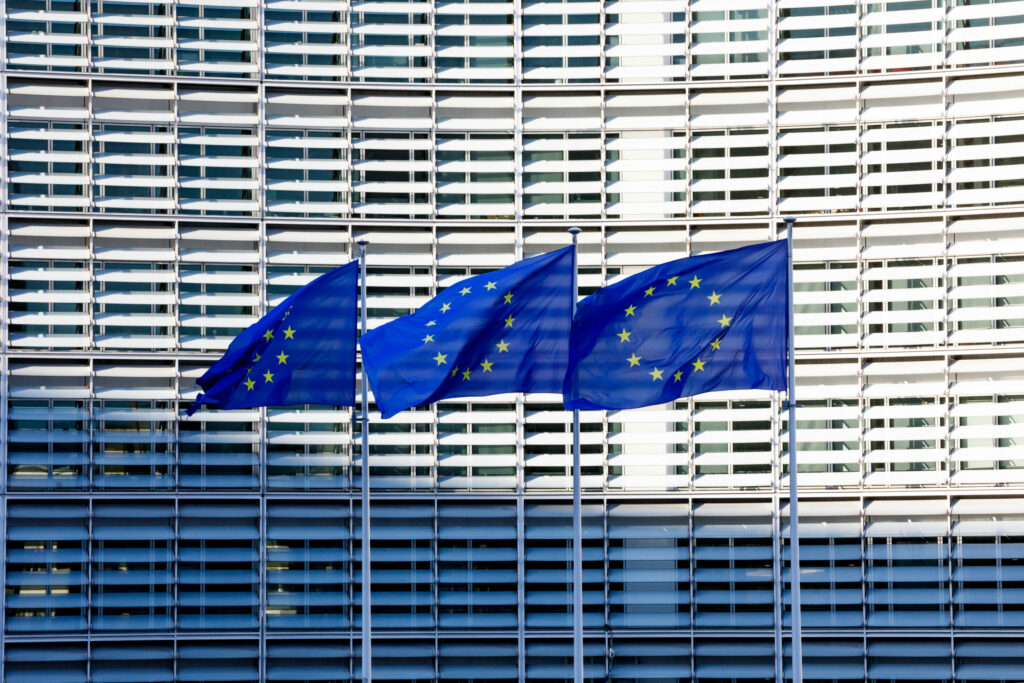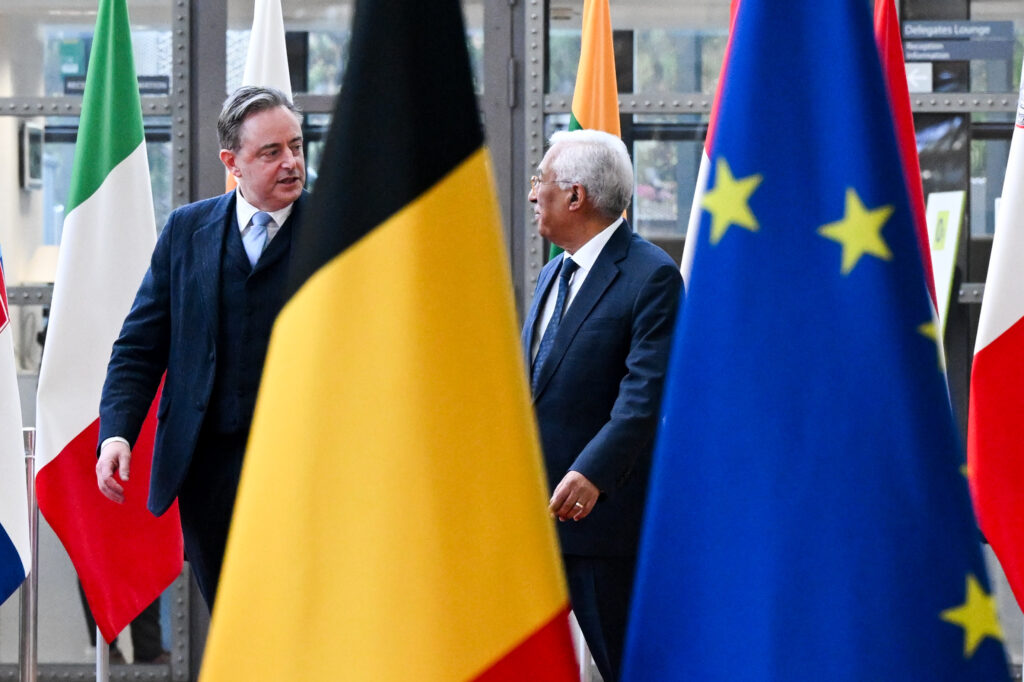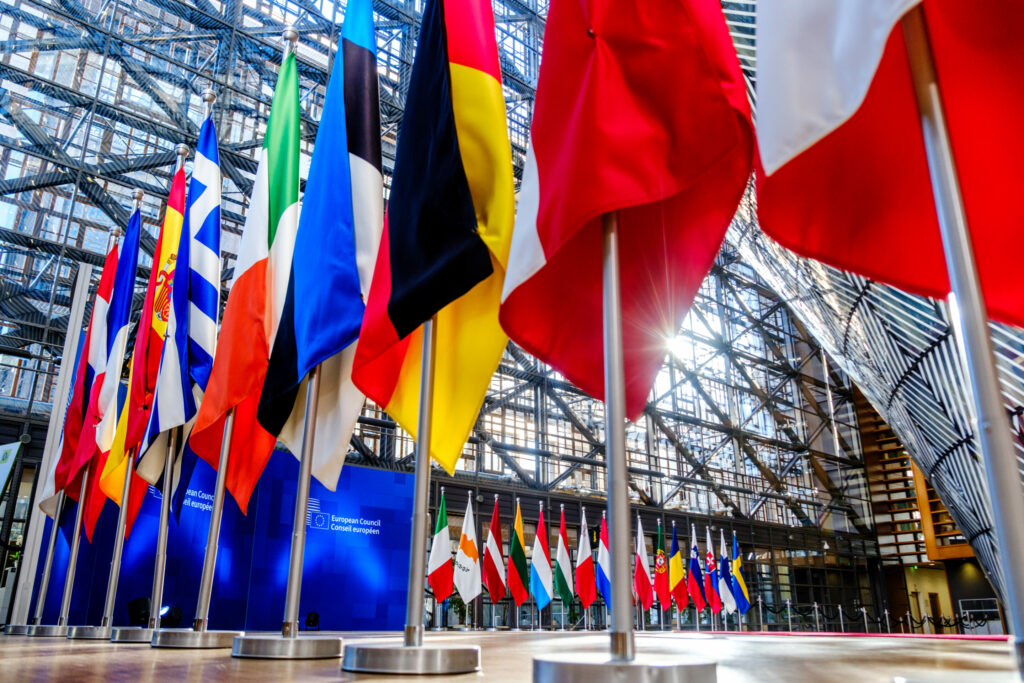With the summit in London last weekend and the special European summit in Brussels on Thursday, the United Kingdom and France are leading the efforts to bring peace to Ukraine and strengthen security in the EU.
On Thursday, EU heads of state and government discussed how to strengthen European defence, both to boost European security and to further support Ukraine. Their talks have grown more urgent as the United States takes a harder line on its policy towards Ukraine.
On Monday, French President Emmanuel Macron proposed a strategic dialogue with countries that do not have nuclear weapons by relaunching the controversial discussion about a "European nuclear umbrella." On Thursday, several EU leaders indicated a new openness to his idea in the effort to strengthen security in Europe.
Making decisions fast
Polish Prime Minister Donald Tusk was receptive to Macron's proposal. "As always it is important to know the details, but this availability from France is very promising," he said, stressing that Europe must win the arms race that Russia has started. "I am convinced that Russia will lose it."
A nuclear umbrella would be "a clear sign for Russia," said Lithuanian President Gitanas Nausėda. "There is a need to strengthen resilience, especially for the eastern flank. We are exposed to hybrid attacks, sabotage of critical infrastructure and illegal migration. We already invest a lot in defence but we cannot do it alone. We have to make decisions now, not tomorrow or the day after."
Latvia's Prime Minister Evika Siliņa called for a rapid mobilisation of resources, stressing that the Baltic states are on the front line. "We already spend a lot of money on security and we cannot solve everything for Europe. We have to do it together."

The Berlaymont headquarters of the European Commission pictured during a special European Council summit to discuss continued support for Ukraine and European defence, Thursday 06 March 2025 in Brussels. Credit: Belga/Hatim Kaghat
"We have to spend, spend, spend on defence and deterrence and continue to support Ukraine. We have to discuss every good idea," said Danish Prime Minister Mette Frederiksen. Like Belgium's Prime Minister Bart De Wever, Frederiksen held back from giving an answer to the nuclear umbrella at this point. "But we have to talk about it," both De Wever and Siliņa said.
"Like most people, the Swedes would prefer as few nuclear weapons as possible. But at the moment, we should be happy and grateful that our neighbours (France and the UK) have nuclear weapons," said Swedish Prime Minister Ulf Kristersson.
Meanwhile, Germany's outgoing Chancellor Olaf Scholz stated that he wants to continue counting on NATO's nuclear deterrent. "There are very specific rules about that," he said. During his election campaign, Scholz' successor Friedrich Merz also suggested talks with the Western European nuclear powers about an umbrella.
A coalition of the willing
The United Kingdom Government also held discussions on Wednesday with around 20 countries interested in contributing to peacekeeping efforts in Ukraine as part of a possible ceasefire agreement with Russia, a British official confirmed on Thursday.
Details of this contribution were not given but follow from UK Prime Minister Keir Starmer's "coalition of the willing" that he spoke about at a summit in London over the weekend (to which Belgium was not invited). Starmer and Macron have discussed the possibility of deploying troops to Ukraine. Other countries might limit their support to logistical aid.
De Wever also referred to the various high-level consultations between EU and NATO Member States that took place in recent weeks. "We have a lot of homework. We are not only a small country but also an exceptionally poor student within NATO and therefore within Europe," said De Wever. Belgium currently spends 1.3% of its GDP on defence.

Belgian Prime Minister Bart De Wever meets European Council President António Costa. Credit: EU
"We are getting the slap on the wrist that we deserve. If you do not pay your membership fee to a club, you should not expect to be allowed to come to the clubhouse," he said. "We have now received that signal and in the coming weeks, I will discuss with the government how we can sit at that table again as soon as possible with our heads held high."
Before the summit on Thursday, De Wever reiterated Belgium's support for Ukraine during a meeting with President Volodymyr Zelenskyy. Regarding the position of the other EU Member States, and therefore of the European Council as a whole, he could only say that they "are quite certain of the position of 25 partners." Hungary and Slovakia have indicated that they do not agree with the draft conclusions of the summit.
"But there are also the United Kingdom, Canada and other partners who could join us in a pro-Ukrainian coalition. If we have to respond to the new order that Trump has created, we need a coalition of the willing."
No American support
In the event of a possible peace agreement, De Wever said that sending troops to Ukraine without American backing would be "unrealistic". He called for caution: "I hear leaders saying that we have to be ready within a few months to do it, even without NATO support and American support. That is not realistic."
However, Belgium would participate in a European mission in Ukraine "in the right circumstances and with sufficient security guarantees," he said. "Without an American backstop, that does not seem realistic, but some water still has to flow through the Dnieper before we get there."
That would only come to pass in the context of a negotiated sustainable peace with security guarantees, De Wever stressed. "I was able to talk about that with Zelenskyy in private, and I do not think we will be there next week."
On Thursday, Russia reiterated its opposition to European peacekeeping troops being deployed in Ukraine to enforce any potential ceasefire. "We see no possible compromise. This discussion is openly hostile towards Moscow," said Russian Foreign Minister Sergey Lavrov.

